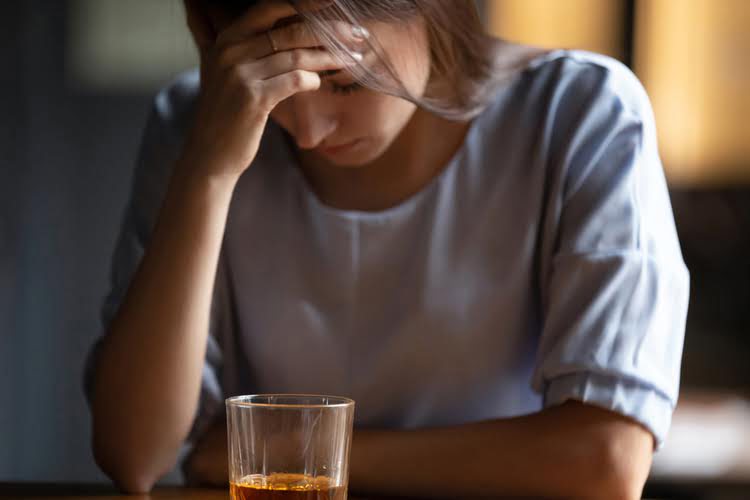Alcohol was itself used as a detoxifying agent through ‘gradual weaning’ that commanded support in the 18th and early 19th centuries 36. By the mid-19th century, the Temperance movement strongly influenced the way habitual drunkenness is conceptualized and had widened its focus to condemnation of all alcoholic beverages. This made it difficult to advocate ‘gradual weaning’ as a justifiable intervention.
And if you have a physical dependence on alcohol, then you’re likely to go through withdrawal if you stop drinking. Medications are often used to manage the symptoms of alcohol withdrawal safely. Benzodiazepines, such as diazepam (Valium) or lorazepam (Ativan), are commonly prescribed to reduce withdrawal symptoms and prevent complications like seizures.
These symptoms typically manifest as physical and psychological changes that can be distressing but manageable with proper medical support. The severity and duration of withdrawal symptoms vary based on factors like drinking history, age, and overall health. Some individuals might experience symptoms for several weeks, particularly psychological effects like anxiety and mood changes. Alcohol withdrawal (alcohol withdrawal syndrome) is a range of symptoms that can happen if you stop or significantly reduce alcohol intake after long-term use. Benzodiazepines are frequently used to treat alcohol withdrawal symptoms by calming the nervous system.
General Principles of Supportive Care
Alcohol use disorder or drinking heavily over an extended period can change a person’s brain chemistry due to continued exposure to the chemicals in alcohol. You may be able to better compare your options by assessing whether and how the program or provider measures success. Evaluate the coverage in your health insurance plan to determine how much of the costs your insurance will cover and how much you will have to pay. Ask different programs if they offer sliding-scale fees—some programs may offer lower prices or payment plans for individuals without health insurance.
Treatment Programs
- Once you stop drinking and all the alcohol is out of your system, your diarrhea should start to get better.
- You may want to learn if the program or provider offers medication and whether mental health issues are addressed together with alcohol treatment.
- Richard Saitz suggested that Alcohol should not be used to treat withdrawal for several reasons 3.
- For many, continued follow-up with a treatment provider is critical for overcoming alcohol problems.
Depending on the symptoms and their severity, the healthcare provider can clinically diagnose the alcohol withdrawal as mild, moderate, or severe using the CIWA-Ar protocol tool. Gabapentin, which has structural similarity to GABA, is shown to be effective in the treatment of alcohol withdrawal 63,64. Gabapentin was as effective as lorazepam in a randomized, double blind controlled study on 46 in-patients with alcohol withdrawal in the treatment of acute mild to moderate AWS 65. Vigabatrin, an anticonvulsant agent, which irreversibly blocks GABA transaminase, showed improvement in withdrawal symptoms after only three days of treatment and is a promising agent for detoxification 66. Reoux et al., and Malcolm et al., concluded that Valproic acid significantly affects the course of alcohol withdrawal and reduces the need for treatment with a benzodiazepine 61,62.
Options for Treatment

This is because the withdrawal symptoms will also be severe and are likely to need specialist treatment. If your consumption of alcohol is high (more than 20 units a day) or you’ve previously experienced withdrawal symptoms, you may also be able to detox at home with medication to help ease withdrawal symptoms. A tranquiliser called chlordiazepoxide is usually used for this purpose. How and where you attempt detoxification will be determined by your level of alcohol dependency.
- In severe cases, withdrawal provokes dangerous complications, including seizures and DTs (delirium tremens), a condition that can be fatal and demands immediate medical attention.
- Withdrawal may also happen if you suddenly reduce the amount of alcohol that you normally drink.
- The best way to prevent alcohol withdrawal is to avoid heavy drinking.
It’s important to get medical help even if you have mild symptoms cure for alcohol withdrawal of withdrawal, as it’s difficult to predict in the beginning how much worse the symptoms could get. For mild alcohol withdrawal that’s not at risk of worsening, your provider may prescribe carbamazepine or gabapentin to help with symptoms. But treatment varies based on the severity of alcohol withdrawal and the likelihood that it could progress to severe or complicated withdrawal. Symptoms of alcohol withdrawal tend to peak 24 to 72 hours after your last drink.

• Efficacy of fixed tapering dose regimens over symptom triggered regimens
Alcoholics Anonymous (AA) has many toll-free numbers and provides people willing to talk with you about Halfway house alcohol issues and solutions. Commonly known by the brand name Vivitrol, this medication is an FDA-approved drug that was originally created for people with opioid addiction. A medication that blocks the enzyme that digests alcohol, resulting in unpleasant effects like vomiting—even when the person drinks a small amount of alcohol. These are a type of anti-anxiety medication that can help lower the risk of seizures. If you’re aiming to moderate your drinking, you may be asked to keep a “drinking diary”. Living with someone who misuses alcohol can be stressful, so receiving support can often be very helpful.

It often raises many questions, especially regarding effective strategies for managing symptoms and ensuring safety. Let’s address some of the most frequently asked questions about alcohol withdrawal, providing insight into different aspects such as medication, home remedies, dietary considerations and more. While you may not feel like exercising during withdrawal, a small amount of exercise is a great tool for coping with alcohol withdrawal. Exercise releases endorphins into your brain, creating natural happy feelings within a person. Not only is exercise one of the most effective natural remedies for alcohol withdrawal, but it’s also good for your self-confidence and recovery. Alcohol withdrawal causes a range of symptoms when a person with alcohol use disorder stops or significantly decreases their alcohol intake.
Alcohol Withdrawal Syndrome: Benzodiazepines and Beyond
For women, heavy drinking means four or more drinks on any day or eight or more drinks per week. It’s difficult to predict who will and who won’t experience alcohol withdrawal — and how severe it will be. When you stop consuming alcohol after prolonged, heavy use, your CNS can’t respond or regulate itself fast enough.
Many people with alcohol problems and their family members find that participating in support groups is an essential part of coping with the disease, preventing or dealing with relapses, and staying sober. The Advanced Addiction Center in Medford, Massachusetts is a beacon of hope for individuals seeking professional support during alcohol detoxification. The center’s comprehensive approach combines evidence-based treatments with personalized care plans, addressing each client’s unique needs throughout their recovery journey. At Advanced Addiction Center, medical professionals closely monitor these changes in the brain during detoxification. This ensures that withdrawal symptoms are managed safely using evidence-based treatments and personalized care protocols. The key to successful withdrawal is to consult with an addiction treatment professional ahead of detox to understand the alcohol withdrawal timeline and detox strategies, like how to taper off alcohol.
Signs of an Alcohol Problem
Remember that it’s important to stay consistent with your treatment plan so that you can have the best chances of recovery. While it’s important to note that there is no cure for alcohol withdrawals, per se, there are many different natural treatments that may help you to manage https://ecosoberhouse.com/ your symptoms. If you’re wondering how to help alcohol withdrawals naturally, there are a few options you can try. However, if you find you need more support, traditional medicine is an option.
